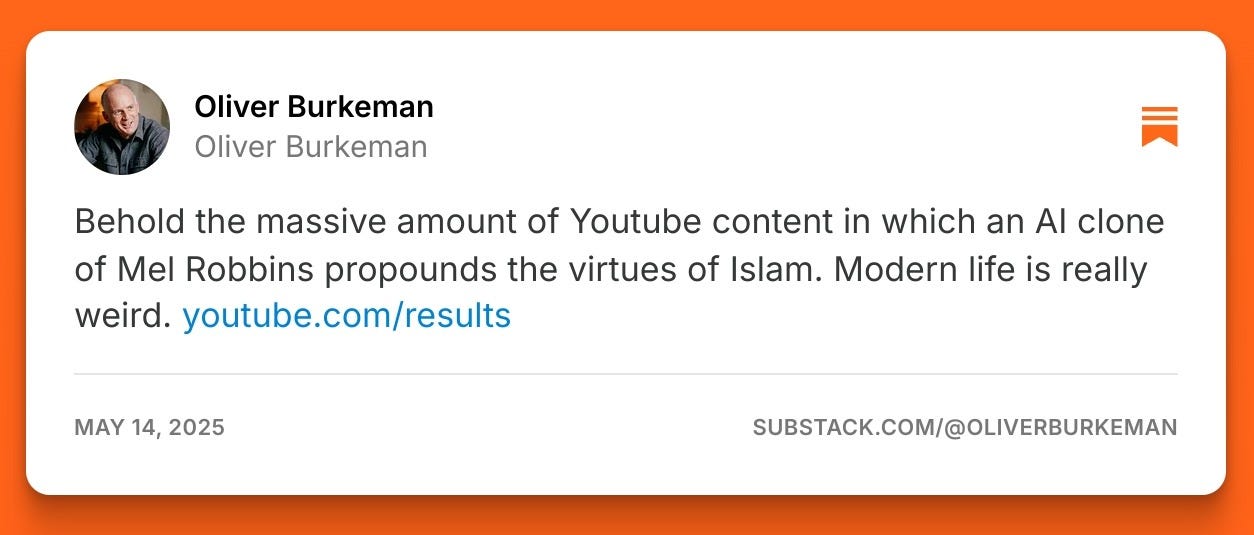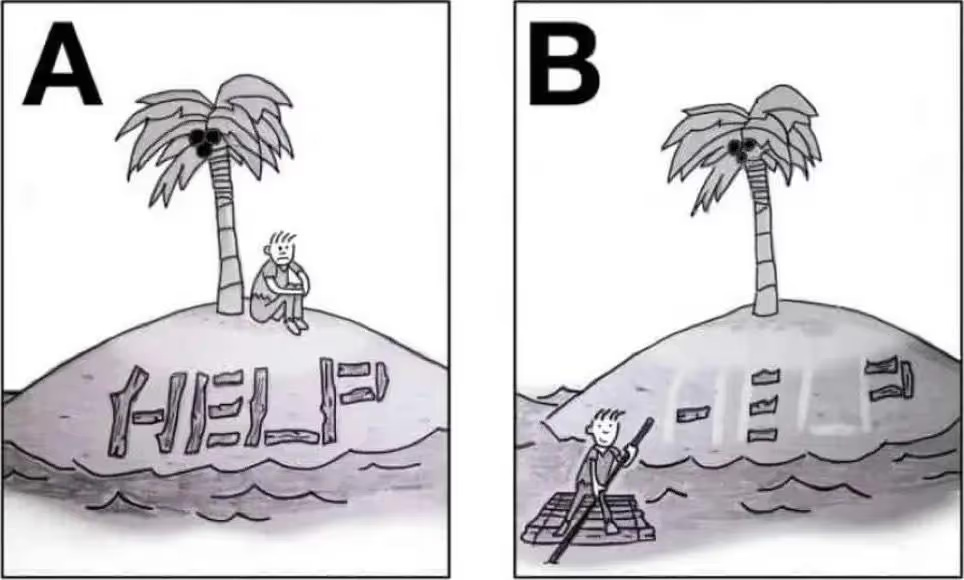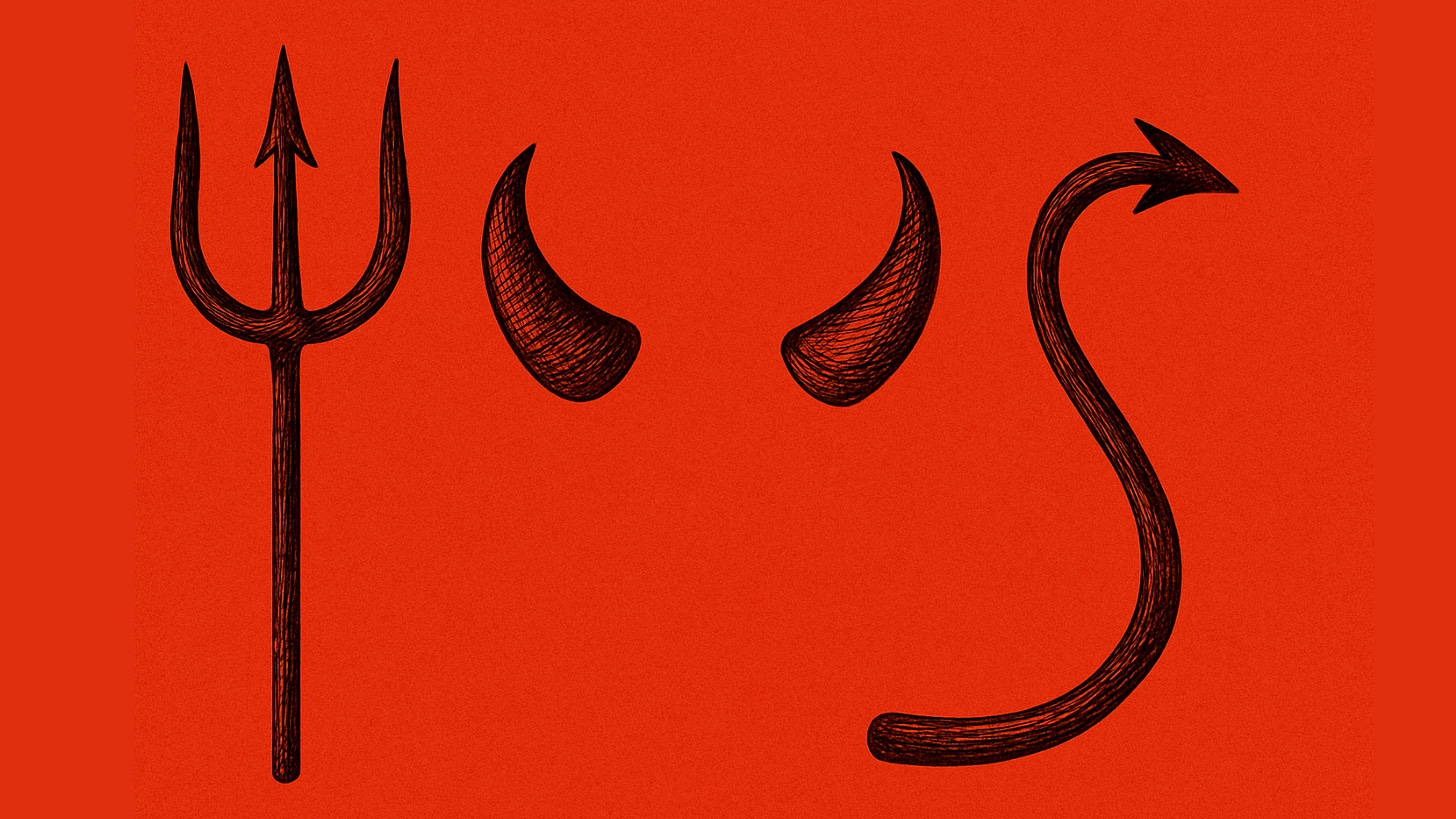Your Moat Good, Brother?
Agency Fatigue and the AI Age & Navigating a World That Won’t Sit Still
As I ponder whether to send my kid to an overpriced private school one year earlier - and the value of standard education these days - more thoughts surface.
Some things I see a lot of people miss in the whole Ai debate:
This isn’t just about adaptation and agency anymore — it’s about adaptation without precedent, without scaffolding, and at a speed that human biology isn’t built for.
We’ve always been changing and adapting to change. So that isn’t really a problem.
What is, however, is the speed and scale.
Let’s just start with the obvious: things are moving fast. Too fast.
Not just in tech, but across the board—climate, politics, economics, society, and most of all, identity. AI is the poster child of this acceleration, but it’s just one face of a broader shift. And if you feel a little disoriented, it’s not because you’re falling behind. It’s because the pace of change has outstripped our ability to process it.
Plenty of the old tools we used to navigate change don’t work anymore. Not reliably. Not at scale. The map is gone. And many of the people shouting advice from the rooftops aren’t seeing the full picture - or are not interested in sharing what they see, because they are still busy selling shovels.
So, let’s get into it.
The Shift We're Living Through
The most unsettling part of our current moment isn’t the change itself—it’s the depth of uncertainty. The old maps (linear careers, predictable life paths, stable institutions) are breaking down. And what we’re left with isn’t just a blank slate. It’s a shifting, liquid landscape.
Bret Weinstein (biologist, systems thinker, not your usual tech bro) put it bluntly: we’re living inside a complex system that is changing weekly, while our biology was built to evolve over generations. AI isn’t a new app; it’s a species-altering force. And we’re deploying it inside human systems that are not just unprepared—they’re structurally incapable of keeping up.
First-Order Thinking: The Basics
So, what’s changing?
AI is coming for knowledge work, not just manual labor.
Institutions (education, careers, government) are weakening.
Trust in leadership is eroding.
We’re drowning in information—some of it shallow, some of it AI-generated noise, some of it outright deepfakes—and starving for synthesis, discernment, and trust.

Kind of ironic, since Mel Robbins raised some controversy over her recent book and a bit too much inspiration from another creator. Anyway.
Meaning and identity are fragmenting.
We know this already. These are the headlines. But the headlines don’t tell you what it means.
Second-Order Thinking: Consequences
Let’s go a layer deeper:
If AI can outperform humans in writing, coding, designing—what’s left for us to do that holds value? And speaking of value, there’s also more to it, obviously. There’s the intrinsic value and market value. Because plenty of thing may still have value for us, but we might not want to pay for it. Does great poetry have value? It sure does. But do you often pay for it? So we may recognize value of things, agree on it, but either not want to pay for it or simply not be able to do so.
And… If every startup can be built with 3 people and a bunch of AI agents, what happens to the job market?
If knowledge is infinite but attention is finite, what becomes the true currency? Clearly not another “lead magnet” with oversized font from a Canva template.
If trust in systems fails, what replaces them? Ah.
Many of the “just pivot” advice peddlers are locked into first-order logic.
It sounds something like this:
"Jobs are changing? Just learn to code. Learn AI. Build your personal brand. Start a business."
Oh cool, great, NOW WE KNOW! Thank you.
And sure, that’s better than denial. But it misses the deeper picture: even your act of adapting is happening inside a shifting system. Your agency is being tested not once, but constantly.
Agency as the Currency. Sure. But Not an Infinite Resource
Everyone’s talking about agency right now. Be more agentic. Take ownership. Don’t wait for permission.
That’s solid advice. Until it isn’t.

Here’s an important bit many miss: agency is a resource. It can be built, yes. But it can also be depleted.
Being high-agency in a stable system? That works. You can take action, get feedback, improve, thrive.
But in a system that keeps glitching—where the rules change mid-game, where effort yields no clear feedback loop, where progress doesn’t stabilize for long enough—even the most agentic people start to burn out.
That’s what I call agency fatigue.
We’re living through a time that demands agency, resilience, clarity, and speed. But the very environment we’re in is undermining our ability to sustain those traits. And that’s the trap.
From Cold Showers to Cold Uncertainty
We’ve spent the last decade glorifying grit. Cold showers, hard things, dopamine detoxes, anti-fragility. But what happens when the thing you’re training for is unknowable? When there is no finish line, no clear reward structure?
That’s where we are now. We’re not just training for discomfort. We’re training for disorientation.
It’s not just about building discipline or resilience. It’s about learning how to move while the floor keeps shifting. I am still a fan of good old grit, but we need to tread carefully.
Third-Order Thinking: So, What Now?
These days it is no longer about crushing it with morning routines or finding the next hack. It’s more about crafting something more durable than a checklist: a personal strategy for moving through instability. As Bret Weinstein put it, in complex systems, we don’t plan—we prototype. That means embracing a mindset that values experiments over conclusions and response over prediction.
So, what does that look like in practice?
1. Prioritize Meta-Skills Over Specializations
In a world where what’s relevant today might be obsolete tomorrow, narrow expertise won’t always save you. What you need are skills that travel well—the kind that help you make sense of unfamiliar terrain, fast.
These meta-skills aren’t shiny. They’re often invisible. But they’re what help you adapt, connect dots, and make better choices when the script vanishes.
Pattern recognition: Spot signals before they go mainstream.
Decision-making under uncertainty: Take action before everything’s perfectly clear.
Emotional regulation: Stay grounded when chaos spikes.
Systems thinking: See how one change ripples through the whole.
Synthesis over accumulation: It’s not about how much you know—it’s about what you understand and apply.
2. Ditch the Map, Grab a Compass
Old world thinking was map-based: go to school, get a job, climb the ladder. Now that map is shredded, and often - the student loan is not.
What's left? A compass. Something internal and portable.
A compass helps you make decisions when no one's handing out clear instructions. It requires reflection and recalibration, especially when things stop making sense.
Know your principles: What matters when everything's up for grabs?
Use heuristics, not checklists: When the terrain is shifting, flexible mental shortcuts beat rigid rules.
Calibrate often: Check your alignment. Just because it worked last year doesn’t mean it works now.
3. Hold Multiple Truths
Our minds crave certainty. But reality is often way messier than we’d like it to be. In complex systems, both things can be true.
You’ll hear polarizing takes everywhere: “AI is amazing!” vs. “AI is doom.” But the truth lives in the tension. If you can't hold paradox, you'll default to denial—or despair.
Learning to tolerate ambiguity is a superpower now.
AI will take jobs and create new ones: Prepare, but don’t catastrophize.
The future is chaotic and rich with potential: You can grieve the loss and get excited.
Adaptation is necessary and exhausting: Acknowledge the toll while still choosing to grow.
4. Optimize for Stamina, Not Just Speed
In the age of acceleration, speed gets romanticized. But in real life it’s usually the long game that matters.
You’re not a machine. You’re not meant to sprint forever. If we’re living through a multi-decade shift, you need to pace yourself like it.
Rest is strategic: It’s not a luxury. It’s a reset button for clarity and effectiveness. I’ve noticed I take more breaks these days (it may be age related, but I digress). Also, I started taking deeper rests, that help me reclaim some sanity, shift gears, change mental lenses. I take more long walks in nature and they never disappoint.
Play is resilience: When you can laugh, improvise, and stay curious—you bounce back faster. Whenever we get too serious, we become rigid and brittle. Play softens the mind and can get us into places we would not be able to get.
Doing less is sometimes the smartest move: Especially when everyone else is spinning their wheels trying to do more. Pause, take stock, reflect. It’s more important to run in the right direction than simply running faster. Plus, ask yourself:
Am I running from or towards something?
Am I running because I don’t know how to walk? (that’s the power of inertia)
5. Curate to Create. Don’t Just Consume
We’re not short on knowledge. We’re short on filtering and integration. On asking: “Do I actually need this right now? Is it a must have or just trivia?”
In a world of infinite content and AI-generated sludge, the value is in knowing what’s worth your time. That means shifting from passive intake to active engagement.
Don’t just bookmark it—use it.
Don’t just skim—synthesize.
Ask: “Where does this fit into what I’m actually doing or building?”
Curation isn’t hoarding quotes or collecting PDFs. It’s making meaning, choosing signal over noise—and then actually doing something with it. At the same time, don’t opt for a mono info diet either. Mix in some variety: think form, depth, area.
6. Create a Mental Operating System
Your brain wasn’t built for the firehose of inputs you get every day. That’s why you need systems. And it’s not for productivity’s sake, but for sanity.
A personal mental OS helps you decide what to pay attention to, what to ignore, and how to keep going when everything feels chaotic.
Define your own decision filters: What’s a hell yes? What’s a hard no?
Put the learning into action: Don’t just highlight ideas. Run small experiments.
Make sense-making a habit: Pause. Reflect. Integrate. To Bloom. Otherwise, you’re just hoarding content, not growing.
Why Systems Thinking Matters More Than Ever
Some people will say this piece is too broad. That it jumps between personal development and societal change. Between AI and identity. Between burnout and business models.
But that’s exactly the point.
These things are not separate. Nothing really is.
You can’t talk about job loss without talking about meaning or about productivity without talking about attention. And about learning without talking about overload.
You can’t talk about adaptation without talking about exhaustion.
The value now lies in connecting the dots and refusing to compartmentalize what is clearly systemic.
So maybe the real question isn’t:
“Where is the world going?”
Maybe it’s:
“Who do I need to become to navigate whatever future unfolds?”
And here’s something worth watching.
The way I see it, they all have a different lens:
First-Order Thinking - Immediate Effects: Amjad Masad focuses on the current capabilities of AI agents and their potential to automate tasks, enhancing efficiency and productivity. Cool, but somewhat myopic. Plus his jacket just makes me want to add some accessories. Sorry Amjad!
Second-Order Thinking - Short-Term Consequences: Daniel Priestley discusses the near-term societal shifts, such as job displacement and the need for individuals to become "high-agency generalists" to remain relevant in the workforce.
Third-Order Thinking - Long-Term Implications: Bret Weinstein delves into the profound, long-term consequences of AI integration, including potential existential risks and the fundamental restructuring of human society.






